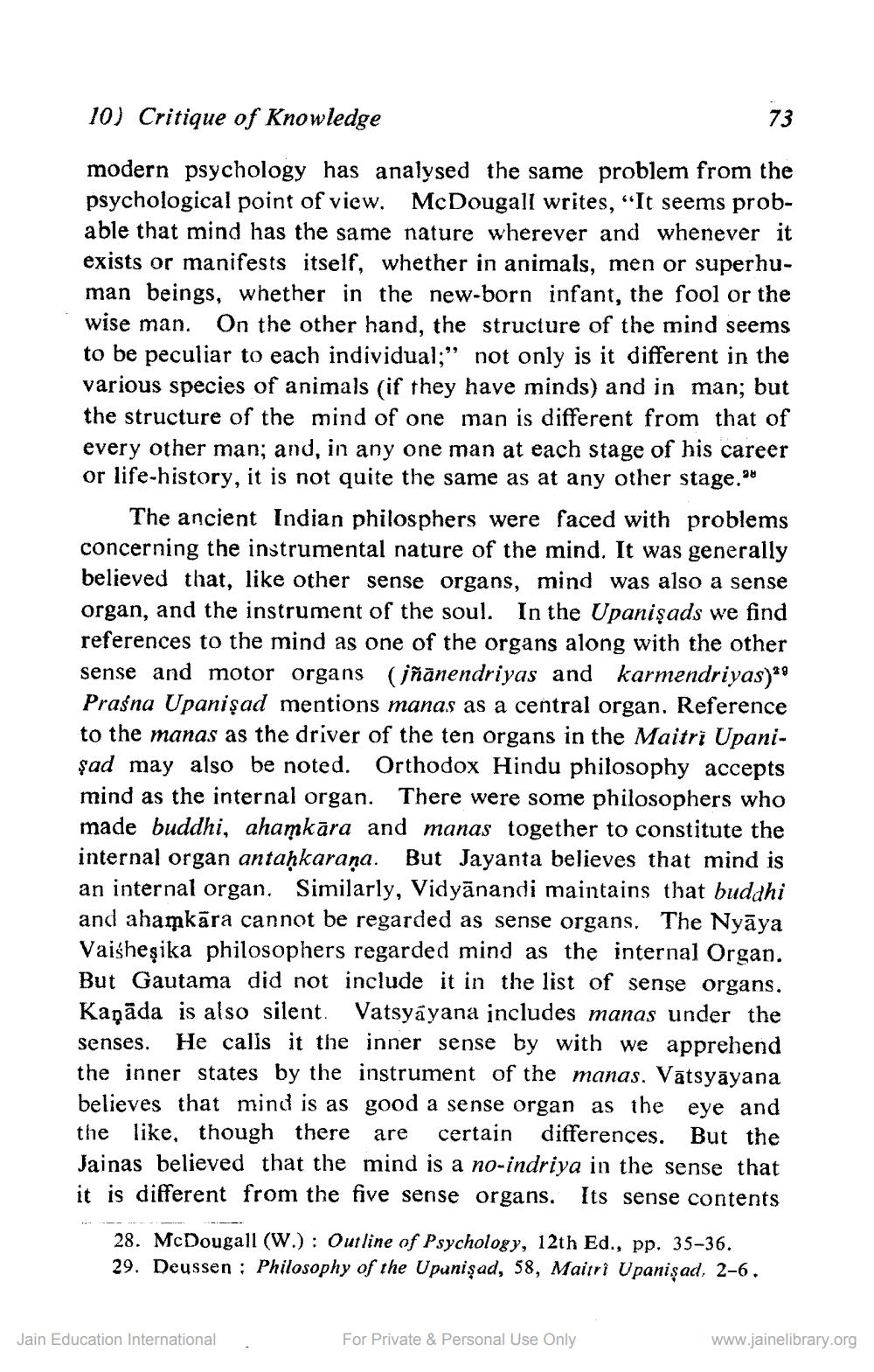________________
10) Critique of Knowledge
modern psychology has analysed the same problem from the psychological point of view. McDougall writes, “It seems probable that mind has the same nature wherever and whenever it exists or manifests itself, whether in animals, men or superhuman beings, whether in the new-born infant, the fool or the wise man. On the other hand, the structure of the mind seems to be peculiar to each individual;" not only is it different in the various species of animals (if they have minds) and in man; but the structure of the mind of one man is different from that of every other man; and, in any one man at each stage of his career or life-history, it is not quite the same as at any other stage."
The ancient Indian philosphers were faced with problems concerning the instrumental nature of the mind. It was generally believed that, like other sense organs, mind was also a sense organ, and the instrument of the soul. In the Upanişads we find references to the mind as one of the organs along with the other sense and motor organs (jñanendriyas and karmendriyas)*9 Prašna Upanişad mentions manas as a central organ. Reference to the manas as the driver of the ten organs in the Maitri Upanişad may also be noted. Orthodox Hindu philosophy accepts mind as the internal organ. There were some philosophers who made buddhi, ahamkāra and manas together to constitute the internal organ antaḥkaraņa. But Jayanta believes that mind is an internal organ. Similarly, Vidyānandi maintains that buddhi and ahamkāra cannot be regarded as sense organs, The Nyāya Vaishesika philosophers regarded mind as the internal Organ. But Gautama did not include it in the list of sense organs. Kanāda is also silent. Vatsyayana includes manas under the senses. He calis it the inner sense by with we apprehend the inner states by the instrument of the manas. Vātsyāyana believes that mind is as good a sense organ as the eye and the like, though there are certain differences. But the Jainas believed that the mind is a no-indriya in the sense that it is different from the five sense organs. Its sense contents
28. McDougall (W): Outline of Psychology, 12th Ed., pp. 35-36. 29. Deussen : Philosophy of the Upunişad, 58, Maitri Upanişad, 2-6.
Jain Education International
For Private & Personal Use Only
www.jainelibrary.org




